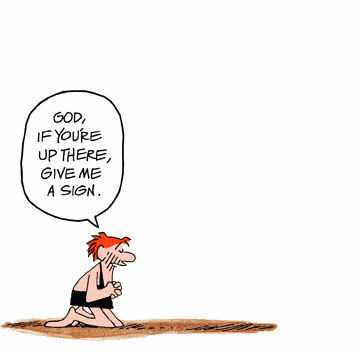N.B. I have always wondered how our Moslem brothers and sisters regard their God, Allah. I ask how they approach Him in their prayer. I found this poem from a Maranao website and I'm surprised at the similarity of our idea of God with their own as loving, forgiving, magnanimous and merciful God . Now, if only other Christians would realize this, I wonder how they would react. I'd like to get your idea after reading this.
LET HIS LOVE REMAIN
A Poem by Jalylah A. Mala(Sat. 04 September 2004)
Why did you keep your burden inside you when you have Allah to tell it to? Why did you fear everyone might hate you when you have Him
who understands you?
Why did you fill your heart with pain and anguish when you have Him
to fill it with eternal bliss?
Why did you choose to settle in turbulence when there’s His pure love
that speaks of peace?
Allah never left you alone,
He was with you all along,
He was tapping your shoulder when you almost wanted to stop,
He was putting a smile on your face when you almost wanted to give up.
Allah has seen the real person in you yearning,
He was wiping your tears off when you were down crying,
He has all the answers to all your questions but you just didn’t care,
You didn’t let Him be your guide because you weren’t sure if for you,
He was there.
Open your heart,
Let Allah wash away the hurt,
Embrace the greatest love He, alone could give you,
He will never doubt you, just be true.
Allah loves what He made,
“Nobody loves me,” that’s what you said,
He wants to see you smile so never lose hope,
So now hang on to His Paradise of heaven’s rope.
Pray to Allah for He listens to all prayers,
Believe in Him alone and not the deceiving others,
Do what He says for He is your mentor,
Love Him truly and not the impostor.
So listen now and lo!
Look up and take it slow,
Walk on to the life Allah chose you to live,
Live your life with Him and you will never grieve.
When you are in a discourse with no more to tell, let Allah’s love
be your word,
When you are in a battle unarmed, let His love be your sword,
When you feel cold, let His love warm you,
When you stumble and fall, let His love catch you.
When you can no longer think, let Allah’s love quicken your memory,
When you have no more food to eat, let His love fill your tummy,
When you can no longer breathe, let His love be your air,
When you have no more to drink, let His love be your water.
When you are lost in the rain, let Allah’s love be your shade,
When you can no longer hear, let His love be your aide,
When you are lost in the dark, let His love be your light,
When you can no longer see, let His love be your sight.
When you are bruised in a fight, let Allah’s love stop your bleedings,
When you can no longer fly, let His love be your wings,
When you are wronged in an argument, let His love unleash what’s true,
When you can no longer walk, let His love carry you.
When no one understands you, let Allah’s love be searched,
When no one listens to you, let His love be heard,
When no one believes in you, let His love be seen,
When no one trusts you, let His love be serene.
When you believe nobody loves you, let Allah’s love be your confidence,
When you doubt nobody protects you, let His love be your defense,
When you feel nobody cares for you, let His love heed,
When you think nobody minds you, let His love breed.
When someone fools you, let Allah’s love make you wiser,
When someone belittles you, let His love make you greater,
When someone scorns you, let His love admire you,
When someone abandons you, let His love show you what to do.
When you are weak, let Allah’s love be your strength,
When you can no longer smile, let His love be sent,
When you are lost, let His love be your way,
When you can no longer speak, let His love tell you what to say.
When you are afraid, let Allah’s love be your protection,
When you are confused, let His love be your liberation,
When you are ill, let His love be your remedy,
When you are hurting, let His love be your therapy.
When you feel like giving up, let Allah’s love push you,
When you feel tired and fed up, let His love’s purpose pursue,
When you reach the pinnacle of your journey,
The angels of the heavens will welcome you finally.
So go on,
Walk to Allah’s throne,
Dry your eyes now and believe,
You have a beautiful life to live.
Stand up and don’t be afraid,
Walk on to where the truth is laid,
Feel the presence of Allah’s love in every air that you breathe,
Feel the might of His power in every drop of hope you grip.
Walk on to the road leading to His heavens’ grandeur,
Put your best foot forward and think not of the obscure,
Don’t go a day without his love, you will never falter,
Don’t let the devil deceive your heart, Allah shall conquer it forever.
So, smile now oh dear,
Now it’s all clear,
The Almighty Allah is forgiving,
Just let go of your hurting.
Hold on and believe in Allah’s love,
That’s the best you can have,
Please never weep again,
And in your heart, let His love remain.
 Today, millions of Catholics worldwide will have their foreheads blacken by ash. Some uninitiated people may think this odd. Some may even label this a 'calling attention to oneself.' Why do Catholics observe this ritual? For many it's a sign and an act of repentance. We ask the minister to put ash on our foreheads to remind us of our motal lives, our origin and our eventual destiny. From ash we were created and so to ash we shall all return.
Today, millions of Catholics worldwide will have their foreheads blacken by ash. Some uninitiated people may think this odd. Some may even label this a 'calling attention to oneself.' Why do Catholics observe this ritual? For many it's a sign and an act of repentance. We ask the minister to put ash on our foreheads to remind us of our motal lives, our origin and our eventual destiny. From ash we were created and so to ash we shall all return.





